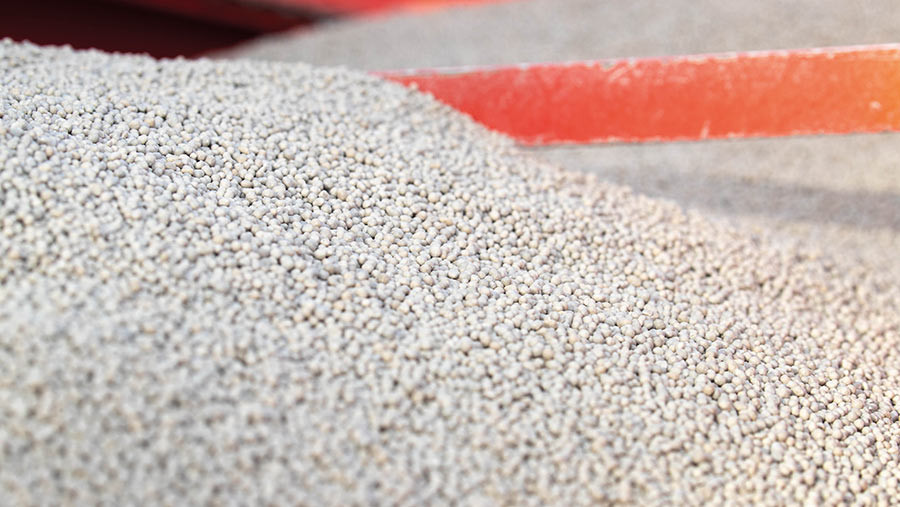Future of Ince fertiliser plant in doubt as closure approaches
 © Tim Scrivener
© Tim Scrivener Speculation continues about the future of fertiliser production at CF’s Ince site in Cheshire, following the government’s rejection of a call for a loan of up to £10m to help a consortium buy the plant.
Ince is due to close in August with the loss of almost 300 jobs as well as the production of ammonium nitrate and NPK compounds.
A group led by former British army chief Lord Dannatt is understood to have asked for government support to buy the plant.
The Agricultural Industries Confederation (AIC) said it would always welcome inward investment in UK fertiliser production and supply.
See also: Groundswell debates how to eliminate fossil fuel fertilisers
Jo Gilbertson, the AIC’s head of sector for fertilisers said: “Many EU member nations are offering manufacturing and user subsidies for fertiliser production and purchase, but as the UK’s trade association for the agri-supply industry, we do not favour market distortions and therefore would not advocate direct subsidy to UK manufacturers.
“Instead, we would prefer fertiliser users to be supported, allowing them to exercise choice regarding materials and supplier.”
Whatever the eventual outcome, Mr Gilbertson said the UK fertiliser supply industry was both competitive and resilient, and would be able to meet farmer demand going forward, for all fertiliser types.
Going concern sale
The Ince plant sits in the Ellesmere Port and Neston constituency of MP Justin Madders, who has been keen to ensure its continued operation and a sale as a going concern.
In a House of Commons food strategy debate on 23 June, Mr Madders asked Defra secretary George Eustice: “On CF Fertilisers… does he agree that despite the ongoing challenges that the industry faces, with a parent company that increased its dividends by 33% in the first quarter, there is no reason why the plant cannot be sold as a going concern?”
Mr Eustice responded: “Although CF Fertilisers has chosen to consolidate its UK operations into Billingham [in County Durham], the Ince plant remains viable and the best commercial exit from that plant for CF Fertilisers would be to progress an offer based on selling it as a going concern.”
CF Industries told the Financial Times: “[We have] spoken with several parties. In the course of those discussions, at no point thus far have the parameters of any transaction — proposed or outlined — appeared likely to secure the long-term future of the Ince manufacturing facility and its employees.”
Earlier this year the NFU called for greater transparency in the fertiliser market, following the hefty upward price movements which started last autumn as a result of gas price rises and which have been followed by even higher prices resulting from price and supply issues resulting from the Russia-Ukraine war.
Mr Eustice was asked recently by the Environment, Food and Rural Affairs select committee to set out by 7 July the assurances he has received about the adequacy of fertiliser and carbon dioxide supply, and the work Defra has done to verify those assurances.
The committee has also asked Defra to provide further information about what solutions are being explored through the commitment in the government’s food strategy to bolster resilience of critical inputs such as carbon dioxide and fertiliser, as well as a publication date for the specific long-term plan on carbon dioxide due this year.
